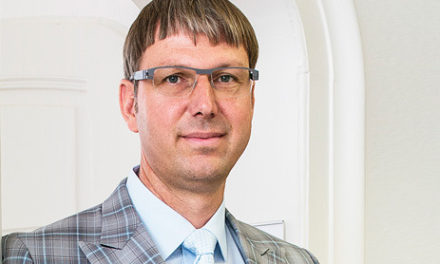Alan Christie – Senior Lecturer (Strategy and Future Thinking)
/Business Institute, University of Ulster
TF: What do you think are going to be the biggest changes concerning our working life in the upcoming 10 years?
I think the biggest changes are going to be about getting less of a work-life-balance and more of a work-life-integration. Up until now people have had a dichotomy between work, leisure and family-time. I think that´s eroding, because we have 24/7 access to all communication-technologies. So the boundaries are blurring between work and family. People are going to have to adapt to knowing when to relax and when to act in a professional way. In terms of work behaviour we are going to see a casualization. I think people will act and behave in a way that will be equal at home as well at work. So work life integration is going to be one of the changes that concerns our professional and private life.
TF: What do you think are the biggest opportunities for our society with a different way of working?
The opportunities for society will be around investing in education, as with the advance of technology by definition there will always be a lack between what we need and what we know. So there’s always going to be a need for education. There’s always going to be the need for people to be involved in the networks to keep in touch with progress. The opportunities will not necessarily be to commit to one career for life, but to try to get to serial mastery. In other words, if you become expert in one particular field, things will advance so quickly that you may not be able to keep up with it. That means, you have to adapt other specialisms and develop other expertise. I think serial mastery is going to be important over the span of a working career.
TF: What are the biggest challenges we are going to have to face?
One of the biggest challenges I see is the distribution of wealth. We have a situation where wealth is still in the hands of my generation the so called generation x. We have the pensions, the shared portfolios, we have the wealth. The generation y or the millenials don’t have those advantages that we have had: free education and free healthcare.
Whenever the generation y considers the development of their careers they will not be doing it with the idea of acquiring wealth. But on the basis of getting enough to live, getting enough money to meet their day to day expenses. They will be relying on their wits as opposed to relying on their capital.
The capital of the new generation will not be as to what they own but to what they know and what they can continue to know.
So another challenge will be the changed paradigm concering education. Currently we take children up until they are 14 or 15 years. We grade them in terms terms of ability. We raise them based on their age, all the ten years old, all the eleven years old are taught in the same way. So they are taught more in terms of age and ability rather than in terms of knowledge and what’s needed.
In manufacturing there is the need to go away from mass production to mass customization. I think the same counts for education. There is a need for developing pedagogy around tailoring educational input by adding the learning style of the people of their own to their abilities and motivations. Now we have the technologies to make education much more tailored. And we are certainly going to have the people to do that as more people move away from production and transaction jobs to interaction jobs. One interaction job would be for example teaching. My dream would be to have educational establishments not with a student’s teacher ratio of 25/30 to 1, which is the case in the UK at the moment, to 5/6 to 1. Because we have the people with the abilities and skills to do that, we could offer a very high level of tailored education that would produce kids who are much more able to take advantages of challenges much earlier.
TF: Will the extinction of transaction jobs also lead to less innovation?
I think whenever you take people out of a process, even if it’s a fairly low process, on one hand you are taking out their potential problems. One the other hand you are taking out the potential individual who could come up with a different way of thinking or a different way of working.
If you put the worker in a position where results are respected but enable that individual to come up with the wrong way of doing it much more efficiently, you have started an innovative process. Technology does almost by definition require a high level of conformance of process but where you have conformance of process people are thinking the same. You are having one problem solved but also you are getting high levels of disengagement. If people are just expected to execute tasks with their hands and not their heads then the level of disengagement rises, which is automatically destructive. Technology is a good tool for leveraging efficiency.
But one of the paradoxes is that you have got to tolerate a certain level of inefficiency to allow creativity to flourish. On one hand being efficient leads to high levels of completeness but if you are too efficient that can boost short term goals but over the longer term, it could probably lead to dysfunctional behaviour or possibly a degree of redundancy to make way for a process.






